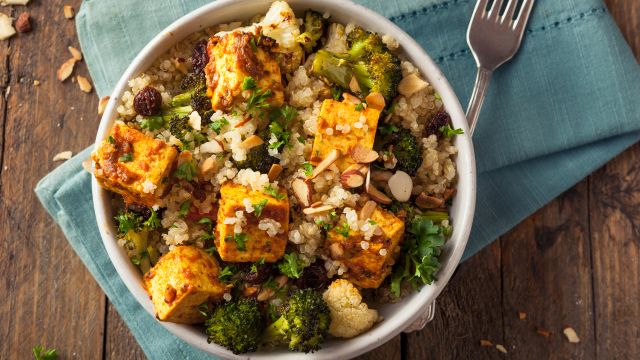Updated on August 25, 2022.
Could managing psoriasis symptoms be as simple as removing a few items from your pantry? Probably not. But for people living with the itching, scaling, and discoloration characteristic of this skin condition, some research suggests that, for certain patients, adopting a gluten-free diet may help reduce symptoms.
What is the connection between gluten and psoriasis?
Celiac disease is an immune condition in which eating gluten—a protein found in wheat, barley, and rye—damages the small intestine and causes a variety of uncomfortable digestive symptoms. Gluten sensitivity yields similar digestive symptoms as a result of eating gluten but does not involve the immune system or cause damage to the intestine.
A review of research published in 2022 in Psoriasis: Targets and Therapy suggests that going gluten-free could be beneficial to psoriasis patients who also have gluten sensitivity or celiac disease. One study in the review found that those patients with high levels of the gluten antibody (called IgA) had improvements in psoriasis symptoms after following a gluten-free diet for three months.
The National Psoriasis Foundation recommends a gluten-free diet only for psoriasis patients who test positive for the antibodies associated with celiac disease, according to a 2020 report in the journal Nutrients. A blood test can determine if you have gluten antibodies.
Does that mean that a gluten-free diet will treat your uncomfortable psoriasis symptoms? Not necessarily. More research is needed before broader recommendations can be made for psoriasis patients.
Eating gluten in itself does not increase one’s risk for psoriasis. A 2020 study of 85,185 people published in the Journal of the American Academy of Dermatology did not find evidence that eating gluten upped the risk of the skin condition.
The bottom line is that following a gluten-free diet doesn’t cure psoriasis, and it doesn’t help everyone who experiences symptoms. But there is enough evidence to suggest that going gluten-free may help some psoriasis patients manage the condition.
Because people with psoriasis have been shown to have a higher prevalence of other autoimmune conditions, including celiac disease, consider talking to your healthcare provider (HCP) about being screened for gluten antibodies and to discuss whether it might make sense for you to try a specialized diet.
Getting started with a gluten-free diet
If you decide that a gluten-free diet may be worth a try, know that it involves more than tossing out all the bread in your cupboard. Follow these steps:
Do it in stages. Although there are tests that can determine if you have celiac disease, one way that some people know if they’re intolerant to gluten is by removing it from their diet. If digestive symptoms improve, it could be a sign of underlying celiac disease. It’s worth remembering, however, that some people with celiac disease do now show outward symptoms after eating gluten.
Ditching gluten cold turkey can be difficult and may cause some unpleasant side effects such as iron deficiency, malnutrition, and anxiety. So do it gradually.
Start by taking a close look at and removing all the foods in your kitchen that contain gluten. These may include obvious sources like baked goods. But gluten can also hide in foods such as cold cuts, soups, and soy sauce. Begin replacing them with fresh, unprocessed fruits, veggies, lean protein, and gluten-free grains such as rice and quinoa.
And keep a lookout for “gluten-free” labels when going grocery shopping. There are also a number of smartphone apps that can let shoppers know if a packaged food contains gluten.
In a 2022 article in Psoriasis, researchers conducted a national survey of people with psoriasis who reported that their skin improved by removing the following from their diet:
- Alcohol
- Gluten, including wheat products
- Nightshade plants (including tomatoes, eggplant, peppers, paprika, white potatoes)
- Packaged foods
The same survey respondents reported that they saw a benefit for their psoriasis symptoms by adding vegetables as well as foods containing omega-3 fatty acids and vitamin D.
Have a plan for eating out. It’s one thing to be gluten-free at home. But eating at restaurants presents its own set of challenges. If you can, check out the menu beforehand and seek out places that have a “GF” (for gluten-free) icon next to specific menu items. Be your own advocate, too. Talking to the server and manager about your food restrictions can also go a long way.
Give it time. The effects of a gluten-free diet, including the potential reduction in inflammation and easing of psoriasis symptoms, won’t be felt right away. The National Psoriasis Foundation recommends that you stick with the eating style for at least three months to see if going completely gluten-free offers a benefit.
Remember not to forego other parts of your psoriasis treatment plan. If you’ve decided that going gluten-free is something you’d like to try, make sure you’re also continuing to implement the other parts of your treatment—even if the diet seems to be helping.







